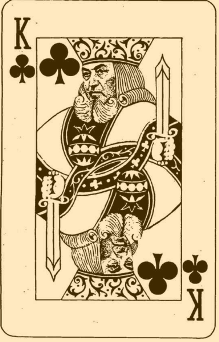
MARCH 14, 1960
During my life I have spent an incredible number of hours getting to bridge games—some of them, I admit, embarrassingly short—but last month I think I broke my record. On a weekend I jetted from New York to London and back just to play three sessions of bridge in England. These were no ordinary sessions, however. I played with Boris Schapiro against the best players in England for the Waddington Cup, emblematic of the British Masters Pairs Championship.
The Waddington is an invitation event, restricted to 22 pairs. Besides myself there were only two other non-British players, C. Delmouly and G. Bourchtoff of France. They won, and that should warn U.S. teams that they will have more to cope with at the World Bridge Olympiad next month than just the Italians. Schapiro and I were top in the second session but did poorly in the first and were lucky to finish ninth.
There were no soft spots in the field. Last year the event was won by Schapiro, playing with Terence Reese. Schapiro asked me to play with him this year because it was thought that Reese would be running the tournament and would be unable to compete. At the last minute, however, he found that he could take part, and he played with Claude Rodrigue. Others in the field included Kenneth Konstam and Leslie Dodds, who played on the English team that won the World Championship match against the U.S. in 1955 (I met this celebrated pair for the first time in Bermuda in 1950, when our American team won the first World Championship); Harrison Gray and Jeremy Flint, whose team, which includes the Sharpies twins, is tied with the team of Reese-Schapiro and Nico Gardener-Albert Rose in the competition for selection of the team to represent England at Turin; the brothers Tarlo, Joel and Louis, who in this event were not playing as partners; and two ladies, Rixi Markus and Fritzi Gordon, whose inclusion was a special tribute to them and whose play demonstrated that they well deserved it.
This was one of the hands that brought the French pair an excellent score:
Neither side Vulnerable East Dealer
Even if they had been defeated on this hand (as Boris and I were), their five-spade contract was well-judged; five hearts was unbeatable. But things happened.
West opened with the club queen, and continued the suit. South trumped, led a spade to dummy’s king and ruffed dummy’s remaining club. Next, he led a low heart. West went up with the queen, and East, with mistaken generosity, permitted him to hold the trick. West, never dreaming that the set was in danger, assumed that East had the blank ace of diamonds. In order to leave partner with an outcard, West shifted to a diamond, so that, after winning the supposed ace, East could safely return another heart.
But the diamond lead caused West to lose an otherwise sure trick and let declarer make his five-spade contract.
East should have overtaken the queen of hearts. Surely, if South had the heart king, he would have led a heart from the dummy toward his own hand. Thus East should have known there was no danger in overtaking West’s queen but great danger in allowing him to hold the lead. A heart continuation or a diamond shift from East would have insured the defeat of the contract.
EXTRA TRICK
When you are sure of the right defense and not sure that partner is equally aware of the situation, take the play away from him if you can safely do so. It’s better to prevent a mistake than to bawl partner out for having made one.


